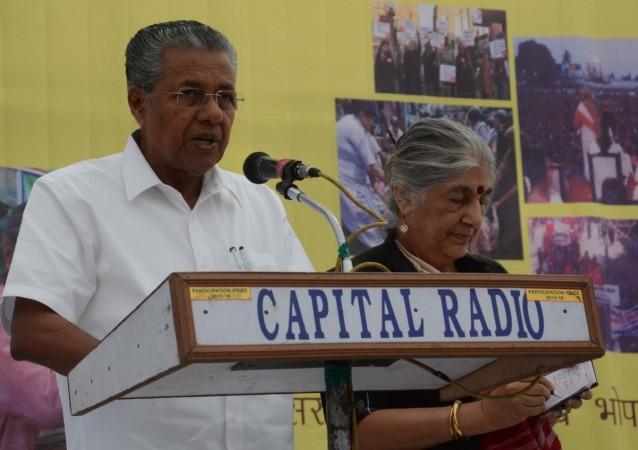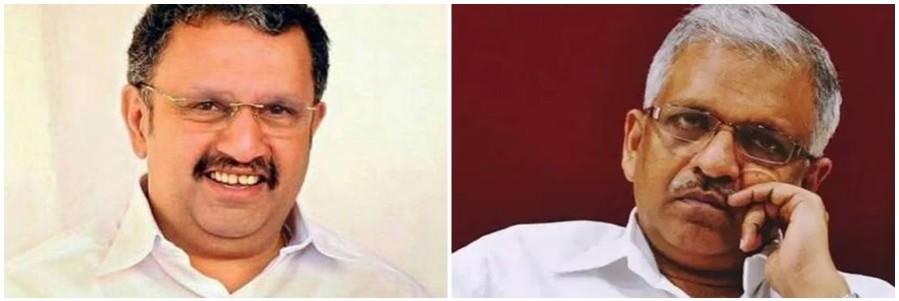
What are the quick lessons from the stunning defeat of the CPI-M in Kerala? The great unravelling of the strongest political party in Kerala can be analysed on two planes - political and moral.
On the political plane, the Kerala electorate rejected the CPI-M's pitch altogether. The Left's twin strategy going into the election was to muddy the waters first and then blame the BJP for it. Chief Minister Pinarayi Vijayan used the Sabarimala conflict to the hilt to wrest minority votes and thrust a wedge in the majority votes of its rival Front. By attacking social evils in the majority community it hoped to get a blind backing from the minorities. The Women's Wall was a classic example of this divisive politics. But the electorate didn't bite the bait.
The CPI-M also figured that fanning the fires of Sabarimala would lead to UDF losing a fair share of its majority votes to the BJP. So in the perfect scenario, UDF would lose its already weak majority vote bank while the minorities would flock to the LDF by virtue of its strident anti-BJP posturing. This, if it were to work, was a perfect recipe for easy victory in the Lok Sabha elections. This would also have ensured that CPI-M ruled Kerala for a long time to come. However, there were far too many flaws in this calculus.
Second, the moral question. The ruling party in Kerala was on the back foot over rising incidences of political killings in the run-up to the election. The murder of two Congress workers in the Kasargod Lok Sabha constituency in February marked the zenith of the Communist party's political violence. The Congress fielded Rajmohan Unnithan, a brilliant orator and tireless campaigner against CPI-M's political killings, in the Kasargod constituency.
Similarly in Vadakara constituency, the Congress fielded K Muralidharan, the son o former chief minister K Karunakaran, to take on P Jayarajan, who is an accused in a political murder case. Vadakara has been the metaphor for the mindless political violence in the state. It was here that in 2012, a young Communist dissenter was hacked to death in one of the most devious political killings perpetrated by the CPI-M.
Stunning audacity

The party showed the audacity to field Jayarajan, who stood accused in the murder. Though the police investigation didn't reach him, for the Kerala's public there is incontrovertible evidence for his role in it. In any case, Jayarajan was charge-sheeted by the CBI in another cold-blooded political killing.
The CPI-M's audacity to field such a person as a candidate stunned Kerala. The party hoped he would win from Vadakara, its stronghold. A win would help erase the blemish and absolve Jayarajan and the party of the stain of political killings, it thought. It was a crafty political calculation but it defied the sense of moral rectitude that Keralites still hold high.
In the event, the party is losing Vadakara by more than 80,000 votes and Kasargod by more than 40,000 votes. These victories, which overturn the basic political make-up of these constituencies, vouch for the strong repudiation of the politics of violence.
The CPI-M cadres and their cyber armies have always displayed the audacity to justify political killings. They tend to be in a time warp, making themselves believe they are in a fierce class war of the 19th century mould where open wielding of weapons is the norm.
The party hasn't realised yet that this obsession with brute power and physical dominance of the opponents cost them their citadel of West Bengal. It remains to be seen if this election serves to de-clutter the CPI-M's violence obsessed psyche.
Will CPM choose right leaders and stay relevant?
That depends on what sort of leaders the party chooses for itself. Tangentially, that question leads to the future of Chief Minister Pinarayi Vijayan. The CM, the architect of the doomed political strategy, is certain to face a rebellion from within the party. As a stunned CPI-M takes stock of the strategic flaws in this election, all fingers will be pointed at one man. He is easily the fall guy. His Sabarimala policy, horribly ill-judged political positioning, poor leadership qualities displayed at time of calamities and emergencies and the treatment of media, rivals and the public alike that ill-suited his position -- all will bite him back as the cadres review the bitter defeat.
(The author is Managing Editor, International Business Times, India. Views are personal. Reach the author at j.jacob@ibtimes.co.in)

















